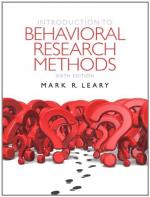|
This section contains 1,939 words (approx. 7 pages at 300 words per page) |

|
Ecology is the study of the relationships between organisms and the relationships between organisms and their environment. Ecology was first recognized as an academic subject in 1869 when German naturalist Ernst Haeckel (1834–1919) first coined the term ecology. The word is derived from the Greek words eco, meaning "house" and logy, meaning "to study," indicating that ecology is the study of organisms in their home.
Ecologists often distinguish between two parts of environment as a whole: the living or biotic part and the nonliving or abiotic part. The biotic part of the environment includes all organisms such as animals, plants, bacteria, and fungi. The abiotic part includes all physical features like temperature, humidity, availability of light, as well as chemical components, such as the concentrations of salts, nutrients, and gases. Ecology, then, is the study of the relationships between and among the biotic and abiotic environments.
Ecology as Part of the Biological Sciences
|
This section contains 1,939 words (approx. 7 pages at 300 words per page) |

|




